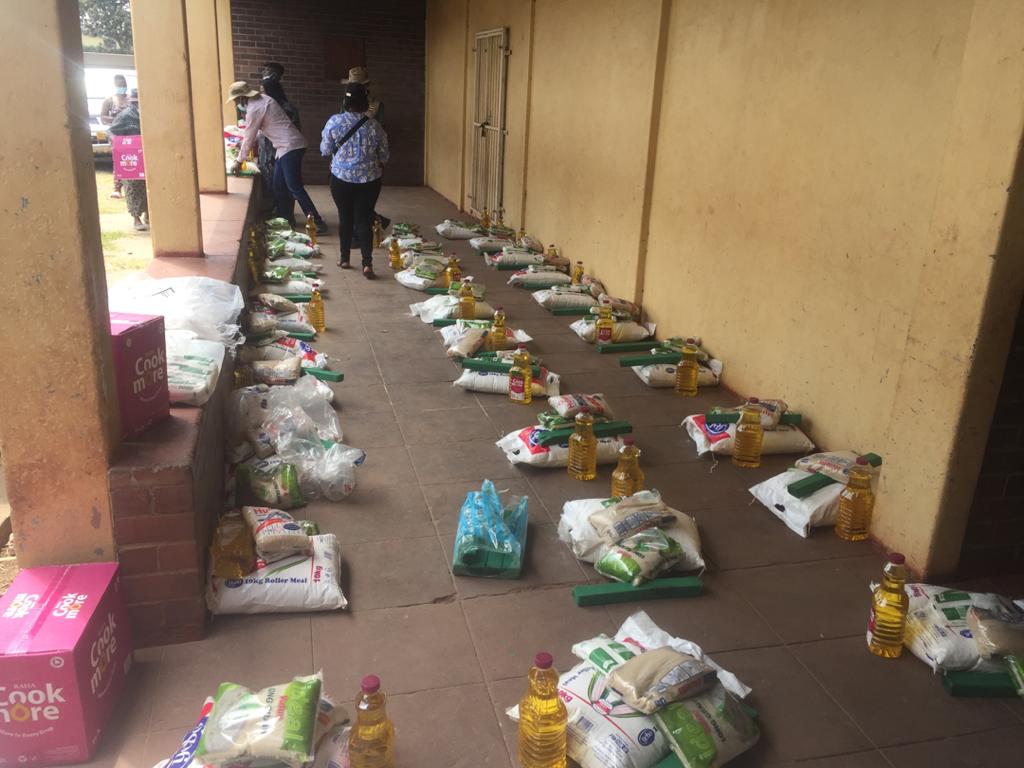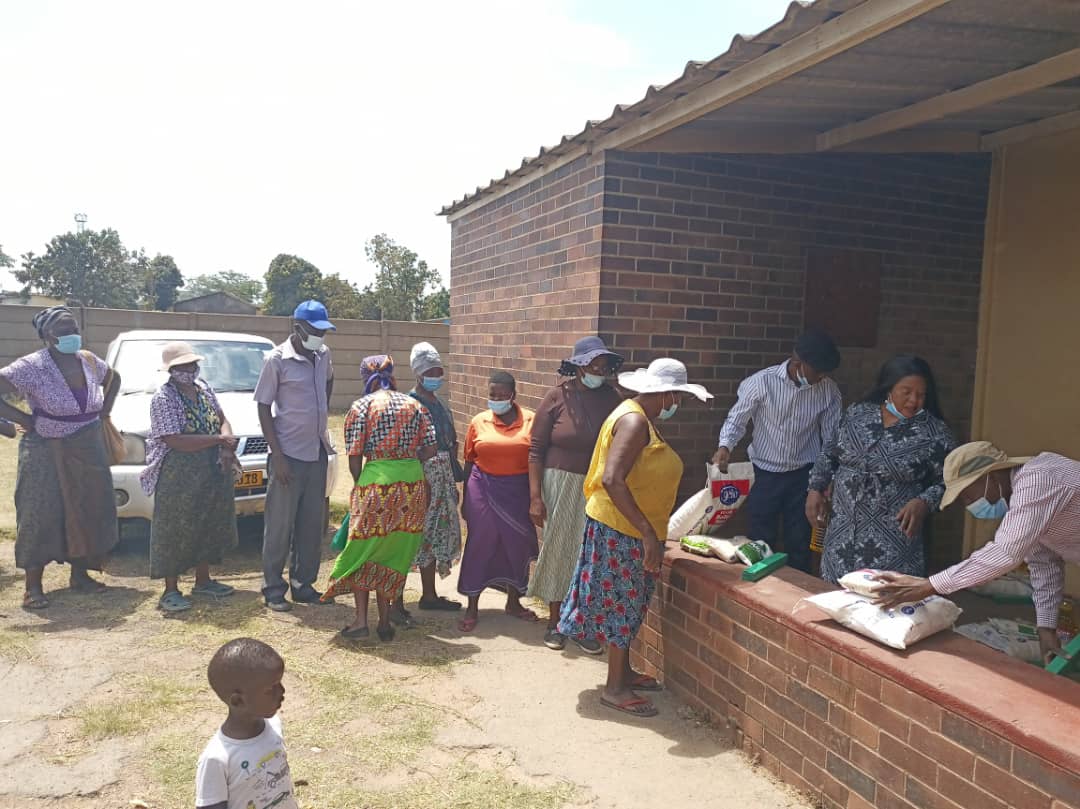|
Getting your Trinity Audio player ready...
|
The Freedom of Rights Under Sovereign (FORUS) Party has commenced a nationwide exercise beginning in the City of Harare’s high-density suburbs where it is providing food hampers to vulnerable families struggling to meet their daily food needs due to the effects of the COVID-19 pandemic.
Current statistics indicate that COVID-19 is aggravating Zimbabwe’s already severe climate- and recession-induced food security crisis, threatening to deepen and widen it.
According to the World Food Programme (WFP) Zimbabwe, the lockdowns imposed to contain the spread of COVID-19 have dealt a severe blow to poor urban communities, many of whom were daily wage earners living from hand to mouth. While unable to find work in cities, the ban on travel has meant that seasonal employment in rural areas is no longer an option for them. With work opportunities disappearing, the recent report states that 42% of urban households will not be able to meet their cereal requirements this year compared to approximately 30% for the same period in 2019.
The World Food Programme (WFP) Representative and Country Director Francesca Erdelmann said “Reduced access to nutritious food has resulted in negative impacts for many. Families will find it difficult to put food on the table, most of them have been stuck at home and were not able to go to work. The fortunate ones will skip meals while those without will have to go to bed on an empty stomach. For the most vulnerable people, hunger will have a lasting effect on their lives. The deteriorating hunger situation, caused by COVID-19 threatens to be their biggest challenge.”
Nearly 83% of urban households are now struggling to buy the food they need for their families. They are unable to buy basics such as mealie meal, salt and cooking oil compared to 76.8% in 2019.
WFP’s urban assistance programme delivers monthly cash transfers to 326,000 Zimbabweans across 23 urban areas and depending on the availability of resources aims to scale up to reach 550,000 people living in the 28 worst affected and food insecure urban areas in the country. Households are given cash through electronic transfers and vouchers that enable them to buy food items from selected retailers.
On Thursday, FORUS Party gathered hundreds of families in high-density suburbs like Mufakose and Kuwadzana in Harare where its members distributed food hampers to needy families. The food hampers comprised basic foodstuffs like maize meal, sugar, cooking oil, rice, salt, and beans, among other necessities. In addition, they provided soap and other daily essentials that are sadly out of reach to many due to COVID-19.

“We are a new party that seeks to attain political leadership in the country. FORUS is a people-centred party whose main objective is for Zimbabwe to attain economic prosperity. We are alive to the fact that the majority of citizens, particularly in urban centres, are grappling with poverty induced by economic mismanagement that resulted in high unemployment rates with a few workers mainly in the growing informal job marketplace.
“The people’s economic woes were exacerbated by the COVID-19 pandemic that resulted in many job losses especially in urban areas. In our recent survey, we realised that most urban families are struggling to put food on the table. As a result, we pooled our resources as FORUS Party and bought food hampers that we are distributing to the needy in urban areas. We have begun the food distribution exercise and we are initially targeting Harare’s poor, high-density suburbs like Mufakose, Epworth, Hopley, Caledonia, Mabvuku, and Hatcliffe, just to mention a few,” said Manyara Irene Muyenziwa, the President of FORUS Party.
In Zimbabwe, most informal workers struggle to find work, while access to food has become a key challenge for poor urban households. FORUS Party is spearheading self-help projects like poultry, rabbit-keeping, and market-gadening in urban areas as part of its economic empowerment programmes.






